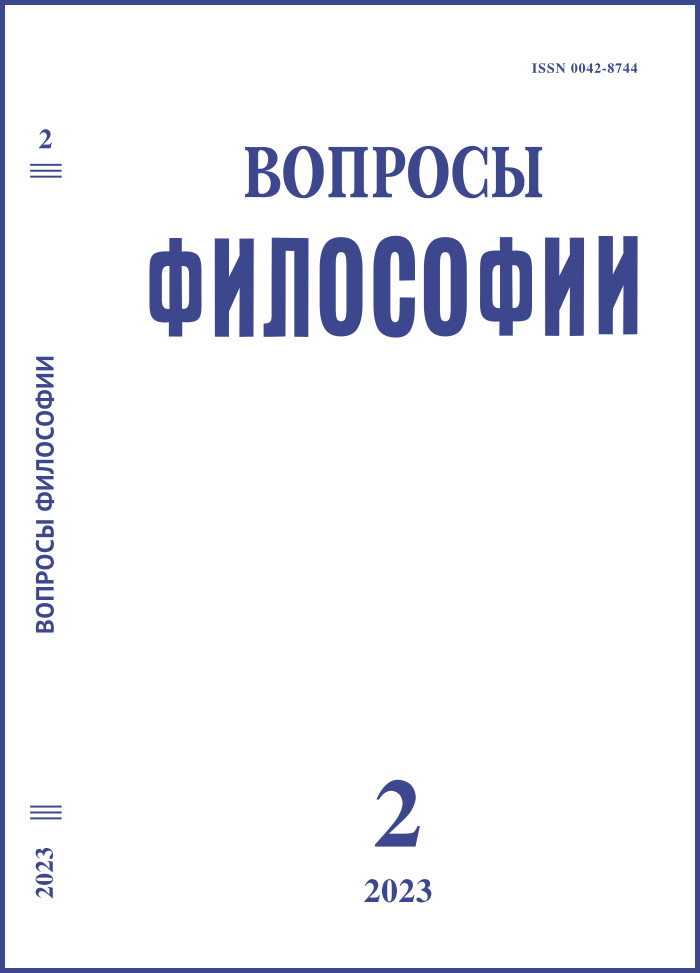Was There a Babylonian Philosophy?
DOI:
https://doi.org/10.21146/0042-8744-2023-2-177-189Keywords:
ancient Mesopotamia, M. van de Miroop, “Babylonian philosophy”, philosophical statement.Abstract
The article criticizes the theory of the assyriologist M. van de Mieroop about the existence of Babylonian philosophy, set forth in his monograph and detailed theses. Each thesis of this theory is quoted and analyzed in detail. The differences between the philosophical statement and the philosophical worldview from the religious and scientific statements of the peoples of ancient Mesopotamia are determined. It has been established that a philosophical statement can only be the author’s and is necessarily criticized by other authors. In philosophical reasoning about the universe, the principle of non-possessiveness of the universal is obligatory. The universe is understood by philosophers as the unity of all things. At the same time, the universe is conceived as consisting of primary elements. In philosophical thinking there is a hierarchy of categories, the idea of the beginning, the limit and the infinite. Unlike the philosophers, the authors of the Sumerian and Akkadian texts were nameless and did not quote or criticize each other. In their reasoning, the universal is always associated with the belonging of many things to one subject, and the world order is understood exclusively as power. The universe appears in the Sumero-Akkadian texts as a multitude of possessed things. Cuneiform texts up to the 5th century B.C. do not know the concept of primary elements. They lack logical definitions and chains of logical reasoning, the hierarchy of categories, the idea of the beginning, the limit and the infinite. Thus, the constructions of the priests and scientists of ancient Mesopotamia, from our point of view, cannot be called philosophical texts.

